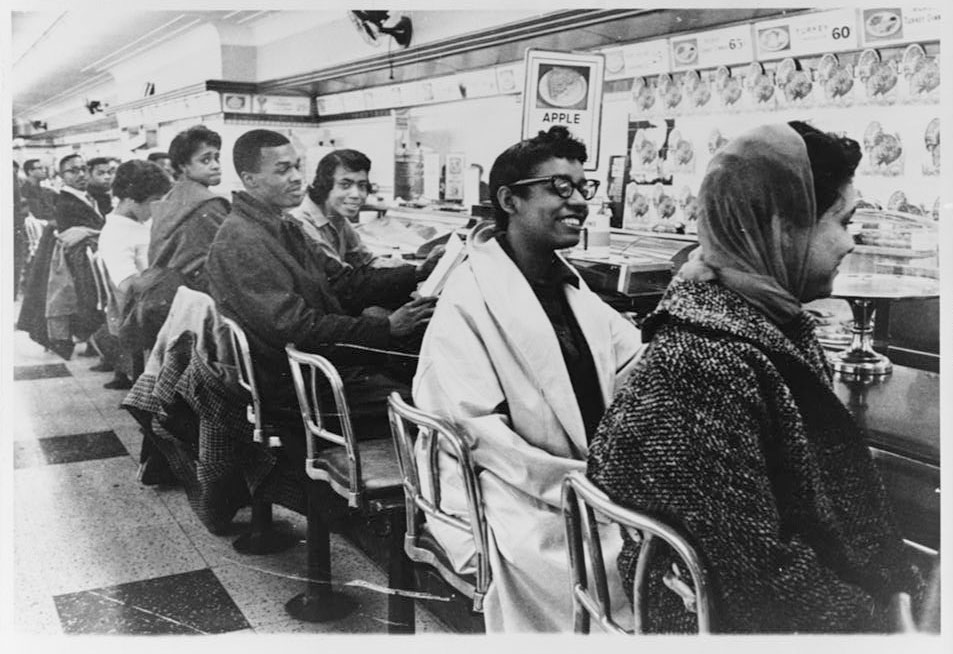
A sit-in organized at a Nashville lunch counter in 1960. Photo courtesy of the Library of Congress, Prints & Photographs Division, NYWT&S Collection.
The 2nd floor of the main Nashville Public Library (615 Church St., 615/862-5782, Mon.-Thurs. 9am-8pm, Fri. 9am-6pm, Sat. 9am-5pm, Sun. 2pm-5pm, Free) houses a powerful freestanding exhibit on the movement for civil rights that took place in Nashville in the 1950s and 1960s. Nashville was the first Southern city to desegregate public services, and it did so relatively peacefully, setting an example for activists throughout the South.Nashville was the first Southern city to desegregate public services, and it did so relatively peacefully, setting an example for activists throughout the South. This history is an important part of Nashville’s legacy. The library is a fitting location for the exhibit, which includes photographs, videos, and displays, because the block below on Church Street was the epicenter of the Nashville sit-ins during 1960.Inside the room, large-format photographs show school desegregation, sit-ins, and a silent march to the courthouse. A circular table at the center of the room is symbolic of the lunch counters where young students from Fisk, Meharry, American Baptist, and Tennessee A&I sat silently and peacefully at sit-ins. The table is engraved with the 10 rules of conduct set out for sit-in participants, including to be polite and courteous at all times, regardless of how you are treated. A timeline of the national and Nashville civil rights movements is presented above the table.
Inside a glass-enclosed viewing room you can choose from six different documentary videos, including an hourlong 1960 NBC news documentary about the Nashville sit-ins. Many of the videos are 30 minutes or longer, so plan on spending several hours here if you are interested in exploring the topics in-depth.
The centerpiece of the Civil Rights Room is a glass inscription by Martin Luther King Jr., who visited the city in 1960 and said, during a speech at Fisk University:
“I came to Nashville not to bring inspiration, but to gain inspiration from the great movement that has taken place in this community.”
Excerpted from the First Edition of Moon Nashville.